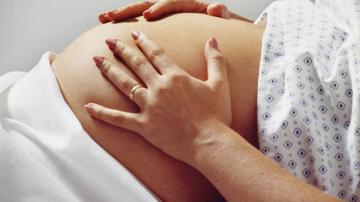The death of a pregnant woman from COVID-19 hasn't stopped her baby being born alive, despite the pregnancy only being in the second trimester.
Aline Guidry, 29, wasn't due to give birth until October, Louisiana TV news station WBRZ reported.
The Baton Rouge woman was hospitalised at the end of May, suffering the disease which has claimed more than 500,000 lives around the world to date. She was placed on a ventilator but didn't improve, and died on June 25 after her lungs collapsed, Baton Rouge newspaper The Advocate reported.
Her daughter Madaline was delivered by emergency C-section in the minutes before her death. A GoFundMe page has been set up to cover "medical bills they have accrued already and will continue accruing with Madaline's [neonatal intensive care unit] stay" and Guidry's funeral.
Madaline was born at only 25 weeks' gestation and weighed less than a kilogram. A study last year found that in the US, the total cost of a premature baby's stay in intensive care can be up to NZ$700,000. So far NZ$53,000 has been raised.

"We'd like people to know to take this virus seriously," Guidry's mother Denise told WBRZ. "But do not stop living your life - be cautious, be careful. It's no joke."
Madaline is reportedly in a stable condition. It's not known if she has the virus, which can be passed onto newborns from their mothers previous research has found, though the symptoms are usually mild in young children.
A new report from the US Centers for Disease Control which analysed the outcomes for more than 8200 cases of COVID-19 in pregnant women found while they're more likely to be hospitalised, admitted to intensive care and require a ventilator than other women of childbearing age, their mortality outcomes aren't any worse.
The CDC last week added pregnancy to its list of conditions which put people at risk of a severe illness from COVID-19.
"While we are all at risk for COVID-19, we need to be aware of who is susceptible to severe complications so that we take appropriate measures to protect their health and wellbeing," said director Robert Redfield.
Others include obesity, diabetes, heart conditions, kidney disease and age.


